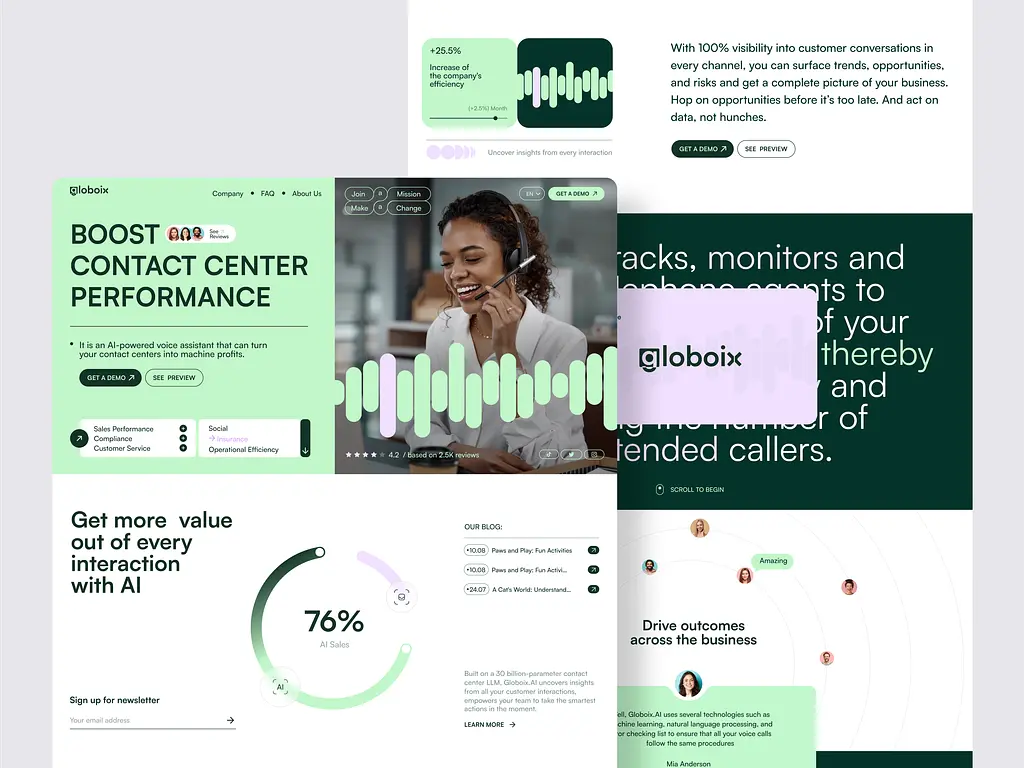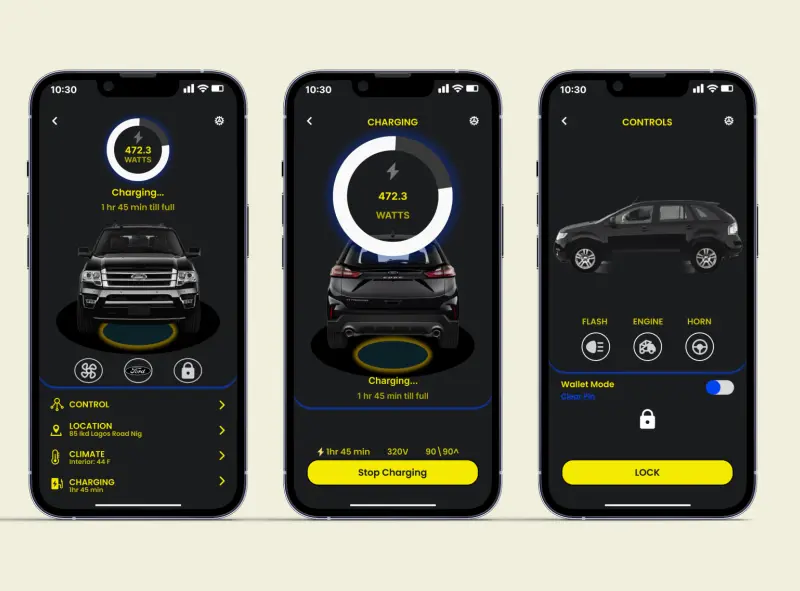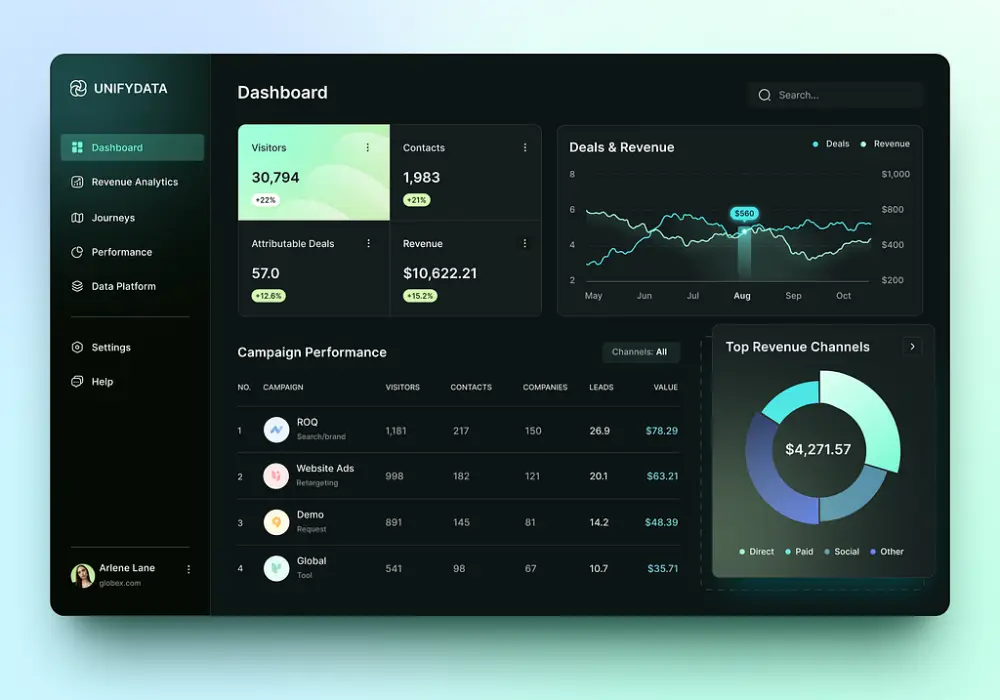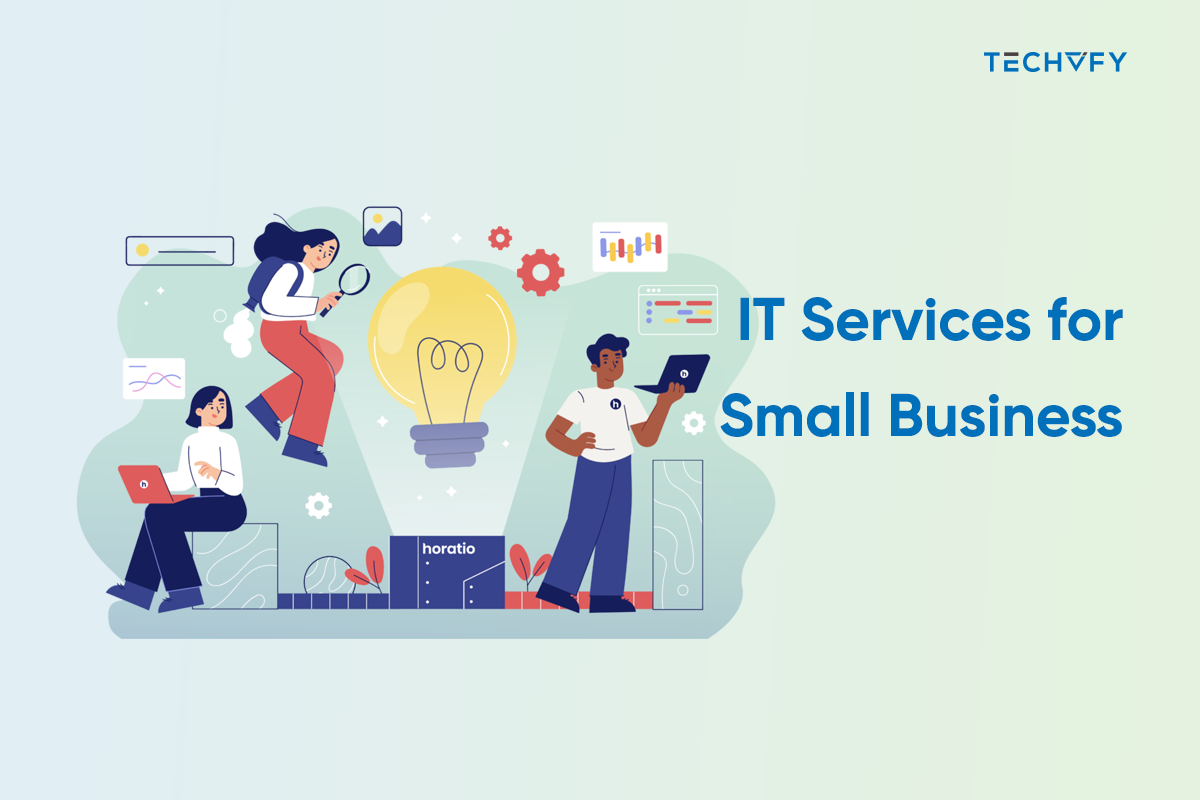Generative AI in Manufacturing – Use Cases for The Future
- TECHVIFY Team
- 0 Comments
AI is changing the manufacturing sector, with generative AI at the forefront of this transformation. This article explores how generative AI, known for its capability to create new content and solutions, is revolutionizing manufacturing operations.
Generative AI leverages vast data streams to enable precise, data-driven decision-making, optimizing everything from production lines to product design. It offers distinct advantages by autonomously generating innovative solutions that enhance efficiency and spur innovation.
However, integrating generative AI into traditional manufacturing setups poses challenges, particularly in areas that demand high emotional intelligence, where it may struggle. Despite these hurdles, the benefits are substantial. Generative AI reduces downtime, streamlines supply chains, enhances product quality and saves costs.
This article will detail use cases of Generative AI in manufacturing, discuss its potential risks, and forecast its impact on the industry’s future. With generative AI, manufacturers are not only addressing current challenges but are also setting new industry standards.
I. Top 5 Use Cases of Generative AI in Manufacturing
Artificial intelligence is advancing quickly and affecting many industries. Below are the most notable generative AI use cases in manufacturing
1. Machine-Generated Events Monitoring
According to Deloitte, predictive maintenance, identified as a best practice, increases productivity by 25%, reduces breakdowns by 70%, and lowers maintenance expenses by 25%. Gen AI enhances these maintenance workflows by using equipment telemetry to minimize unexpected downtime, improve operational efficiency, and maximize equipment use.
Generative AI enhances predictive maintenance in manufacturing through advanced behavioral analysis. It starts with data collection from machinery sensors and tracking parameters like temperature and vibration. This data helps identify key operational patterns. A generative model like a Generative Adversarial Network (GAN) or a Variational Autoencoder (VAE) is trained with these patterns to learn the machinery’s normal behavior and detect anomalies.
Once trained, the model continuously analyzes real-time data against this baseline to spot deviations that may signal malfunctions. This allows predictive maintenance to be scheduled based on equipment needs rather than a fixed schedule, improving efficiency and optimizing resource use.
Furthermore, as the system collects more data, the model refines its predictions, improving maintenance accuracy and overall manufacturing productivity and transparency.
Real-life example:
BMW is an existing brand that uses predictive maintenance in the automotive industry. They employ cloud-based predictive maintenance solutions to monitor the health of vehicle components and forecast potential failures. This proactive approach allows BMW to replace components as a precautionary measure, helping to avoid unnecessary downtime or unexpected breakdowns. Predictive maintenance ensures that vehicles are maintained optimally, enhancing reliability and efficiency.
We have everything about Generative AI that you are looking for:
Learn More On:
2. Customer Service Automation
Generative AI enhances customer interactions by simulating human conversations, serving as a 24/7 virtual representative for manufacturers. It answers questions and provides product information continuously, reducing reliance on human customer service agents. This allows staff to tackle more complex tasks, boosting productivity and efficiency.
The system excels in processing and analyzing vast customer data, including usage, feedback, and purchasing patterns. It quickly identifies trends and preempts issues, improving customer experiences and customizing offerings.
Generative AI’s learning capabilities allow it to improve with every interaction, enhancing service personalization and customer loyalty. It also handles high inquiry volumes efficiently, which is crucial during product launches or peak periods, aiding in operational scaling.
Real-life example:
Delta Airlines is a brand that utilizes generative AI for customer service automation. They employ generative AI in their chatbot, “Ask Delta,” which simulates human conversations to serve as a virtual representative available 24/7. This AI-powered assistant answers customer inquiries, provides product information continuously, and assists with checking in, tracking bags, and finding flights. This allows Delta to reduce its reliance on human customer service agents, enabling staff to focus on more complex tasks and ultimately enhancing productivity and efficiency.
3. Product Design and Development
Generative AI employs machine learning algorithms to explore and generate multiple design solutions, targeting engineer-defined objectives like operational efficiency and material optimization. Each design iteration refines the process towards the most effective solution.
This approach expands possible design options, leading to innovative, efficient, cost-effective products that keep businesses competitive.
Initially, engineers set design goals for costs, manufacturing, and performance. The AI system then creates designs that meet these criteria and optimizes them through continuous learning and iteration, surpassing traditional design methods.
Results include:
- Faster design processes, reducing time to market.
- Increased innovation with creative and unconventional solutions.
- Enhanced product performance and material use efficiency.
- Significant cost reductions from minimized waste and fewer physical prototypes.
Real-life example:
Autodesk’s generative design software employs machine learning algorithms to generate multiple design solutions based on objectives such as operational efficiency and material optimization. This technology enables engineers to set design goals for costs, manufacturing, and performance, with the AI system generating and optimizing designs through continuous learning and iteration. This approach surpasses traditional design methods, offering more innovative, efficient, and cost-effective products.
Looking for a Software Development Company?
TECHVIFY is the best option for you. Book a free consultation to get an accurate time and cost estimation for your project.
4. Quality Control with Generative AI
Generative AI plays a key role in maintaining quality and managing production in the manufacturing sector. Traditional methods for identifying equipment malfunctions are often challenging, as they rely heavily on experts interpreting operational data. Integrating AI and Machine Learning technologies offers a more effective approach.
These AI systems quickly identify even small defects in equipment. Manufacturers can detect issues early using generative AI, shifting from reactive to proactive. This early detection reduces downtime and the costs associated with unexpected equipment failures.
Sensors on key machinery collect data during production. Advanced algorithms analyze this data to spot anomalies and patterns that may signal future problems. Generative AI enables real-time responses, preventing issues and maintaining efficient production, significantly benefiting manufacturing operations.
Generative AI systems also monitor for potential errors and notify relevant parties immediately, preventing minor issues from becoming major disruptions. These systems continuously check their performance and promptly report defects, enhancing overall production quality.
Real-life example:
Ford has integrated AI and machine learning technologies into their production processes to maintain quality and manage production more effectively. This generative AI helps them identify equipment malfunctions and defects in vehicle parts early, significantly reducing downtime and the costs associated with unexpected equipment failures.
Ford’s implementation of AI systems allows for the real-time analysis of data collected from sensors on key machinery. Advanced algorithms analyze this data to identify anomalies and patterns that may indicate future problems, enabling a proactive maintenance and quality control approach. This shift enhances overall production quality and efficiency, demonstrating the substantial benefits of generative AI in manufacturing operations.
5. Production and operations
Generative AI significantly improves production and manufacturing operations. It uses advanced algorithms and real-time data to manage daily activities, ensuring efficient production flows. The technology employs predictive analytics to detect patterns and potential issues, enabling early resolution and reducing disruptions.
Generative AI enhances production by analyzing data to refine processes, allocate resources effectively, and increase output. It helps manufacturers adapt quickly to market changes and maximize capacity. Generative AI also provides clear insights and recommendations, aiding decision-makers in enhancing manufacturing performance and competitiveness.
Real-life example:
Nike uses generative AI to enhance its manufacturing operations by improving demand forecasting. The AI provides precise predictions by analyzing customer behavior, sales history, market trends, and seasonal patterns. This allows Nike to adjust production levels dynamically, scaling up or down as needed to meet anticipated demand efficiently.
This capability streamlines production, reduces waste, and ensures Nike can quickly adapt to changing market trends. Through generative AI, Nike also explores automated design processes, speeding up product development in response to evolving consumer preferences.
II. How TECHVIFY Custom AI Solutions Drive Manufacturing Excellence
At TECHVIFY, we provide custom AI solutions that enhance manufacturing operations. As a global AI and software consulting company, we specialize in developing tailored solutions for diverse business needs. Our services are designed to improve manufacturing processes by optimizing production, enhancing supply chain efficiency, and boosting operational effectiveness.
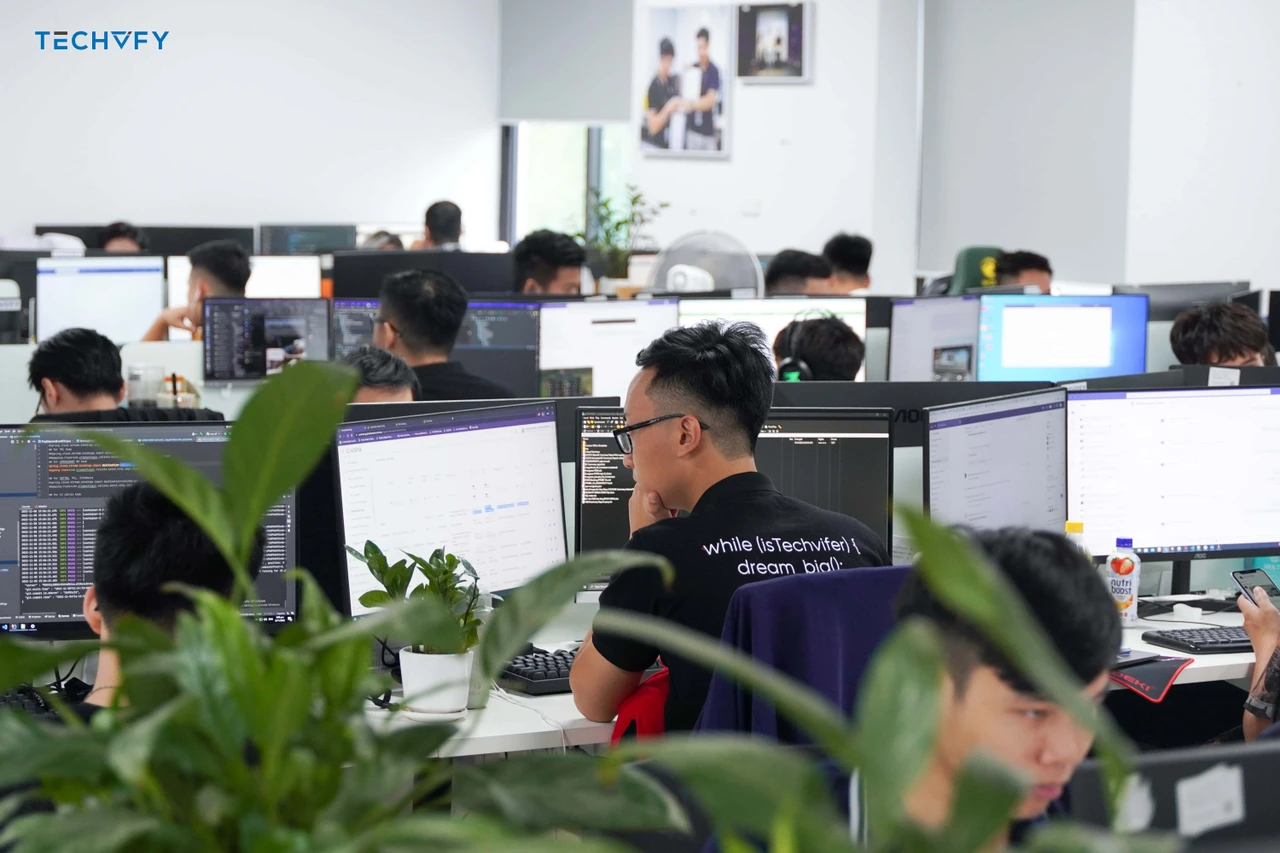
Our AI solutions enable manufacturers to anticipate maintenance needs, efficiently manage production schedules, and ensure product quality through advanced quality control systems. We focus on integrating AI seamlessly and specifically adapted to each manufacturing environment.
At TECHVIFY, we have strong capabilities in the manufacturing and energy sectors. Our team brings significant experience working with large companies in these industries. We focus on delivering customized AI and software solutions that improve operational efficiency and production capacity. This practical approach allows our clients to achieve their specific business objectives effectively.
Conclusion
Generative AI in manufacturing is transforming the industry, streamlining operations, and raising industry standards. The journey to integrate this cutting-edge technology brings challenges. Still, the payoff—enhanced efficiency, significant cost savings, and a competitive edge—is undeniable.
Are you ready to unlock these benefits for your business? At TECHVIFY, we specialize in crafting custom AI solutions that revolutionize manufacturing processes and boost productivity. Contact us today to explore how our tailored solutions can drive your success.
TECHVIFY – Global AI & Software Solution Company
From Startups to Industry Leaders: TECHVIFY prioritizes results, not just deliverables. Accelerate your time to market and see ROI early with high-performing teams, AI (including GenAI) Software Solutions, and ODC (Offshore Development Center) services.
- Email: [email protected]
- Phone: (+84)24.77762.666




